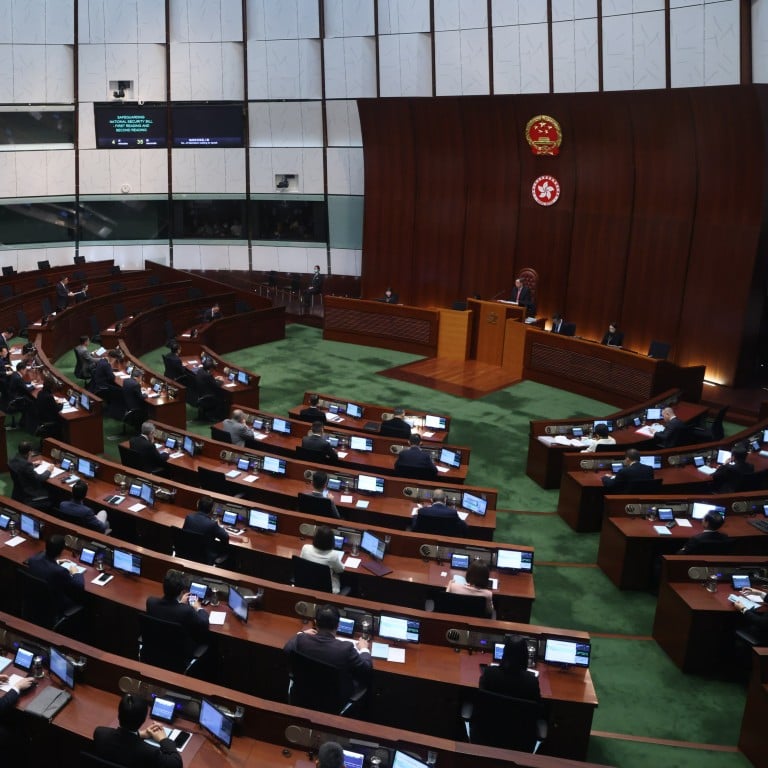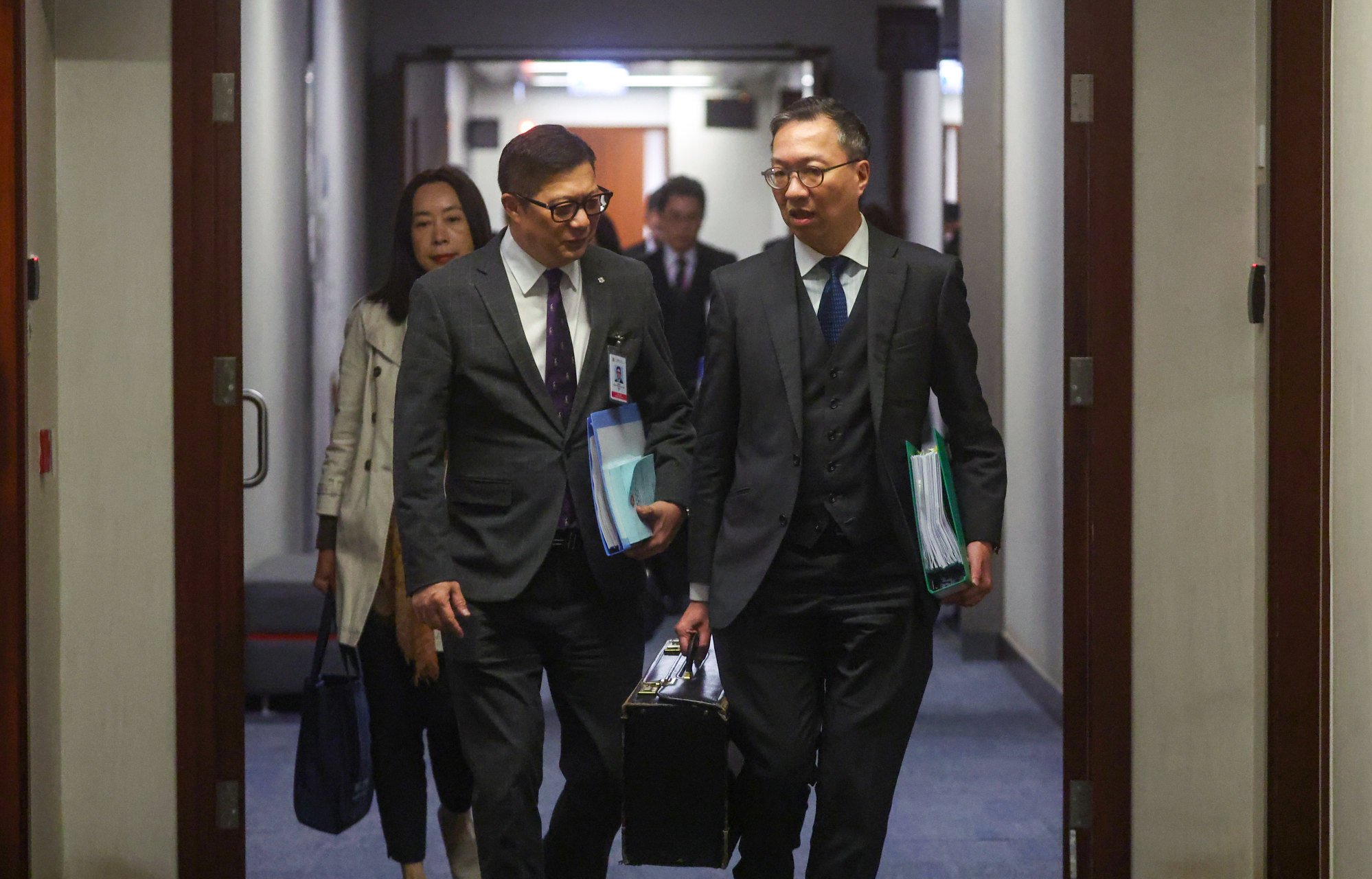
Hong Kong lawmakers expected to approve Article 23 bill on Tuesday after resumption of second reading brought forward
- Special meeting will be convened at 9am on Tuesday, paving way for lawmakers to pass the Safeguarding National Security Bill
- Lawmakers completed clause-by-clause scrutiny of bill in just six days last week
Hong Kong lawmakers are expected to unanimously approve a domestic national security bill on Tuesday night after the legislature backed a government request for a special meeting to bring forward the resumption of its second reading.
If the Safeguarding National Security Bill is passed, authorities will have taken only 50 days from the launch of the public consultation exercise to writing it into law.

Legco president Andrew Leung Kwan-yuen said he supported the completion of the legislation under “the sooner, the better” principle to plug the national security loophole. No 2 official Eric Chan Kwok-ki said he looked forward to working with all sectors to move the city’s focus to economic development.
Each of the 88 lawmakers is allowed to speak for a maximum of 10 minutes before a vote on the motion on Tuesday.
A committee of the whole council will discuss whether to support the 91 amendments proposed by the government. This will be followed by the third reading debate, after which the legislation can be voted on.
“We expect that these could be done within a day,” said Ben Chan Han-pan, a lawmaker from the Democratic Alliance for the Betterment of Hong Kong, the city’s largest political party.
He is responsible for coordination of the work of 18 fellow party members in the legislature.
Who are Hong Kong’s 2021 Legco candidates?
Several lawmakers from other parties backed Chan’s views on the likely timeline.
One politician, who asked not to be named, said that legislators coordinated among themselves to ensure their speeches were concise and “less repetitive”.
The call for an early full meeting was revealed on Monday as Legco listed the security bill on its calendar for the next day. Other legislative work was pushed to the usual Wednesday meeting.
The decision was endorsed by Leung, according to a notice that dealt with security chief Chris Tang Ping-keung’s written request made last Friday to resume the second reading at the “earliest possible date”.
Leung said on Monday there had been sufficient public discussion on the proposed legislation.
“I don’t see a problem,” he added. “The deliberation in the bills committee was open and feedback has been positive.
“The ‘sooner, the better’ principle is the consensus of everyone.”
Leung denied there was a “deadline” to have the legislation on the statute books.
Why is Hong Kong going full speed with its Article 23 security legislation?
The committee completed a clause-by-clause scrutiny of the bill in six days last week.
The legislature earlier waived a 12-day notice period to speed up the vetting process after a written request from Tang to the House Committee last Friday.
Chief Secretary Chan highlighted the 2019 anti-government protests at an economic forum on Monday as justification for the domestic security law. He said it aimed to complement the Beijing-decreed one to improve the city’s “overall, basic security”.
“Hong Kong had not realised that national security could be under such a serious threat, especially in 2019,” he added. “After Hong Kong becomes safer, we will unite with all walks of life to focus on developing the economy and improving the livelihoods of the people.”
The Executive Council, an advisory body for Chief Executive John Lee Ka-chiu, will suspend its weekly Tuesday meeting to let members who are also lawmakers attend the Legco session.
Exco member Ronny Tong Ka-wah, in an op-ed for the Post, sought to allay concerns over a proposed amendment to the bill that would empower the city’s leader to make subsidiary national security legislation.
If we must have a national security law, Hongkongers should give their input
Tong said that in the common law system the subsidiary legislation made under the bill could not enlarge the scope of the law and was subject to supervisory oversight by the judiciary.
“If you fall foul of the subsidiary legislation, you may be punished for non-compliance of the regulation but never for being guilty of the crime specified under the primary legislation,” he added.
The bill, which will complement the national security law Beijing imposed on the city in 2020, targets five offences: treason; insurrection; theft of state secrets and espionage; sabotage endangering national security; and external interference.
Major concerns raised in Hong Kong and abroad included its “broad and vague” definitions of terms such as “state secrets” and “external interference”.
Four American politicians wrote a joint letter to the US Secretary of State Antony Blinken and predicted Article 23 legislation would further erode the rule of law and fundamental freedoms of the people of Hong Kong and affect United States interests in the city.
They appealed to Washington to consider stripping diplomatic privileges from the three Hong Kong Economic trade promotion offices in the US.
The authors of the letter included Chris Smith, chairman of the Congressional-Executive Commission on China, and Mike Gallagher, head of the House Select Committee on the Chinese Communist Party.

